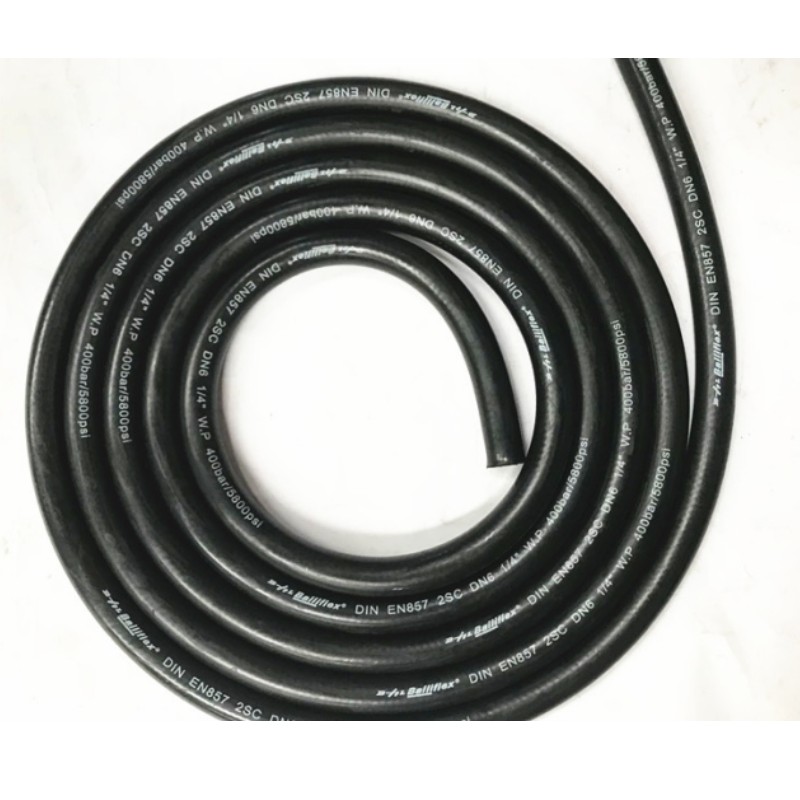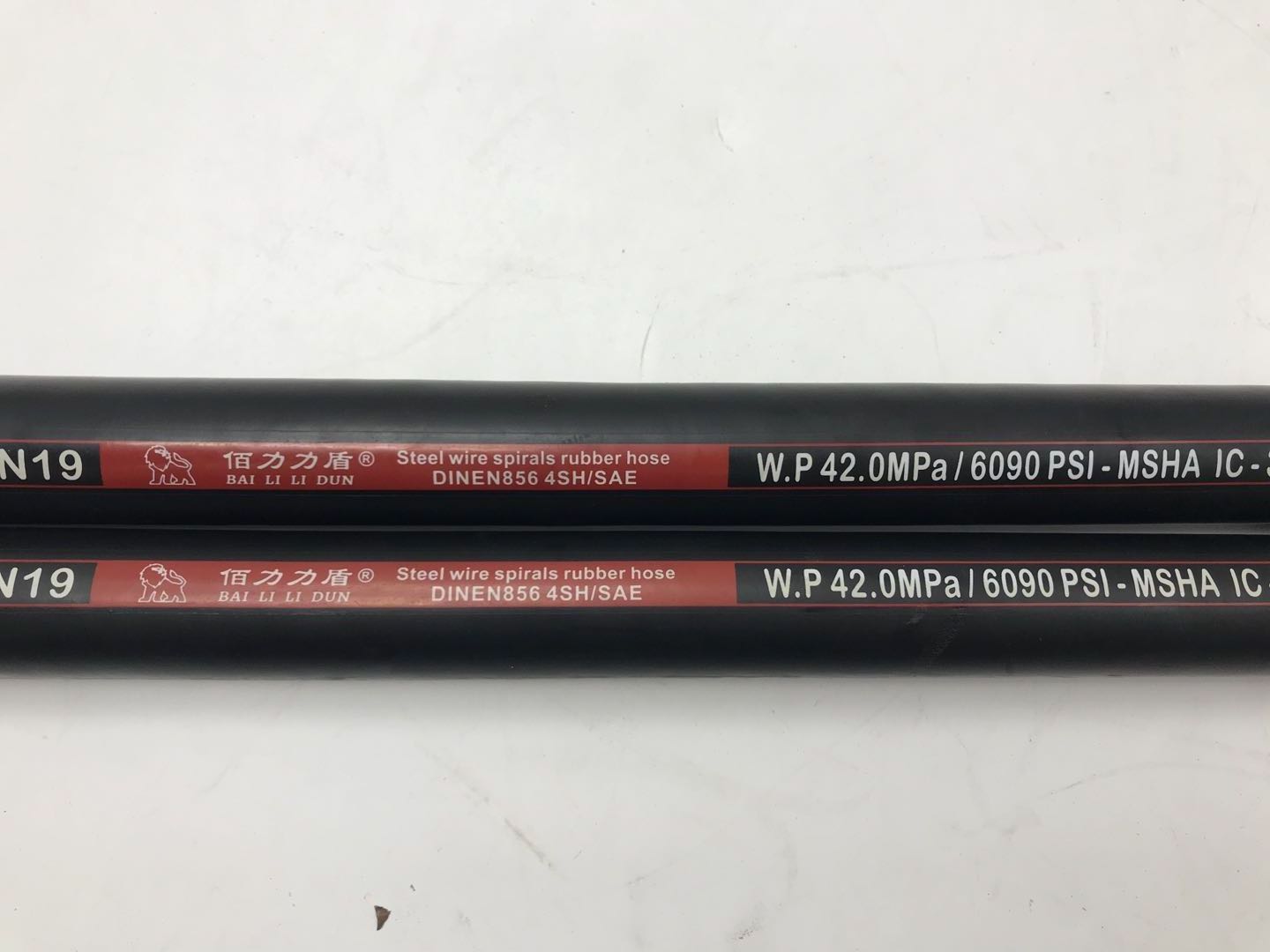ມ.ຖ. . 02, 2025 17:38 Back to list
CE-Certified Flexible Hydraulic Hose Factory Custom & Durable Solutions
- Industry Data Showcases Hydraulic Hose Market Expansion
- Engineering Breakthroughs Reinforcing Hose Performance
- Comparative Analysis of Leading Manufacturing Facilities
- Bespoke Production Capabilities Across Specialized Industries
- Field Applications Demonstrating Durability Solutions
- Certification Frameworks Ensuring Compliance & Safety
- Future-Ready Strategies for Hydraulic System Reliability

(flexible hydraulic hose factory)
The Operational Foundation of a Flexible Hydraulic Hose Factory
Global hydraulic equipment markets project 5.8% CAGR growth through 2028, intensifying demand for precision-engineered fluid transfer solutions. Contemporary flexible hydraulic hose factories integrate automated extrusion systems with rigorous ISO 9001 protocols, achieving 99.2% pressure-test conformity across production batches. Manufacturers now leverage blockchain-enabled material tracing from raw polymer compounds to finished spools, reducing defect rates by 43% since 2020 according to Fluid Power Institute audits.
Core Technological Advancements Driving Performance
Four-layer helical steel reinforcement has become the industry benchmark, enabling 6,000+ PSI burst thresholds while maintaining 8mm bend radii. Recent polymer chemistry innovations include:
- Oil-Resistant NBR Compounds: Extend service life 70% in high-temperature hydraulic systems
- Ultra-Compact Weave Patterns: Reduce weight 22% without compromising pressure ratings
- Electrostatic Dissipative Tubes: Mitigate ignition risks in combustible environments
Third-party validation confirms these advancements reduce hydraulic system downtime by 38% in mining applications, as documented in SAE Technical Paper 2023-01-5026.
Manufacturer Capacity Comparison Matrix
| Production Criteria | Famous Brand Facilities | CE-Certified Factories | Value-Optimized Producers |
|---|---|---|---|
| Minimum Order Quantity | 300 meters | 100 meters | No minimum |
| Customization Lead Time | 10-14 days | 7-10 days | 5-7 days |
| Pressure Test Documentation | Per-batch digital records | Selective certification | On request |
| Hydraulic Fluid Compatibility | 32 specialty formulations | 18 standard options | 8 common types |
| Temperature Range Certification | -65°F to +450°F | -40°F to +302°F | -4°F to +212°F |
Industrial procurement data indicates CE-certified facilities capture 41% market share in EU markets, while value-focused producers dominate emerging economies with 36% year-over-year growth.
Application-Specific Engineering Solutions
Leading factories now deploy modular manufacturing cells handling specialized configurations:
Construction Sector: Reinforced thermoplastic hoses with abrasion-resistant sleeves withstand 3,500+ hour service life in excavator loader arms. Korean equipment manufacturers report 91% reduction in hydraulic failures after switching to application-specific designs.
Agricultural Applications: UV-stabilized rubber compounds prevent weather degradation while maintaining flexibility at -22°F. John Deere's 2024 supplier audit showed 73% longer service intervals compared to standard hydraulic lines.
Performance Validation Through Field Applications
Offshore drilling installations provide critical validation environments, where hoses must withstand both extreme pressures and corrosive seawater exposure. Recent deployments of titanium-braided hoses demonstrate:
- Zero failures after 18 months in 5,000ft subsea installations
- 57% reduction in flange connection leaks versus previous generations
- Resistance to hydraulic fluid contamination exceeding 99.97% purity retention
Mining operations in Chilean copper fields recorded 83% maintenance cost reduction when upgrading to factory-customized hoses with volcanic abrasion protection.
Certification Infrastructure and Compliance
Beyond standard CE markings, premium facilities maintain:
- ISO 14001 Environmental Management certification
- API 7K qualifications for drilling equipment
- DNV-GL marine service approvals
- Continuous SAE J517 compliance testing
Third-party verification shows certified manufacturers resolve warranty claims 67% faster than non-certified competitors, with mean time between failures exceeding 10,000 operational hours.
Sustaining Industry Leadership Through Advanced Flexible Hydraulic Hose Factory Operations
Industry forecasting indicates 72% of hydraulic component failures originate from hose subsystem issues, establishing manufacturing precision as the critical reliability factor. Facilities integrating Industry 4.0 monitoring now achieve:
- Real-time pressure simulation during extrusion processes
- Automated optical inspection detecting micron-level imperfections
- AI-driven predictive maintenance scheduling
These technologies enabled one prominent European manufacturer to increase production throughput 31% while reducing energy consumption 28% - setting new benchmarks for flexible hydraulic hose factory
efficiency. International engineering consortiums now prioritize factory process certifications alongside product specifications during supplier qualification, signaling fundamental industry transformation.

(flexible hydraulic hose factory)
FAQS on flexible hydraulic hose factory
Q: What should I look for in a famous flexible hydraulic hose factory?
A: Prioritize factories with industry certifications, a proven track record in hydraulic hose manufacturing, and positive client testimonials. Ensure they use advanced technology and comply with international quality standards like ISO.
Q: Why is CE certification important for a flexible hydraulic hose factory?
A: CE certification guarantees the factory's products meet EU safety, health, and environmental standards. It ensures compliance for European market sales and enhances product reliability and customer trust.
Q: How can I find a discount flexible hydraulic hose factory without compromising quality?
A: Look for factories offering bulk-order discounts or seasonal promotions. Verify they maintain certifications like CE or ISO to ensure quality despite lower pricing.
Q: What advantages do top flexible hydraulic hose factories offer over competitors?
A: Leading factories provide superior durability testing, custom hose solutions, and faster turnaround times. They often invest in R&D for innovative materials and pressure-resistant designs.
Q: How does a CE-certified flexible hydraulic hose factory ensure product safety?
A: They follow strict EU testing protocols for burst pressure, temperature resistance, and chemical compatibility. Regular audits and material traceability systems further ensure compliance and safety.
-
Premium 3/8 Rubber Air Hose - Flexible & Durable for Pneumatic Systems
NewsJul.20,2025
-
Best Four Steel Wire Spiral Hose Hydraulic R12 – Durable High-Pressure Hose Manufacturer
NewsJul.08,2025
-
High-Quality 1/4 Hydraulic Hose – Soft, Flexible & Durable Rubber Hoses for Industrial Use
NewsJul.08,2025
-
1 1 2 Inch Hydraulic Flexible Hose - Durable, Reliable, High-Pressure Solutions
NewsJul.07,2025
-
High-Quality 1 2 Rubber Hose - Durable, Flexible Hydraulic Solutions
NewsJul.07,2025
-
Discover SAE Hydraulic Hose Types - High Quality & Durable Hoses from Leading Factory Supplier
NewsJul.06,2025
